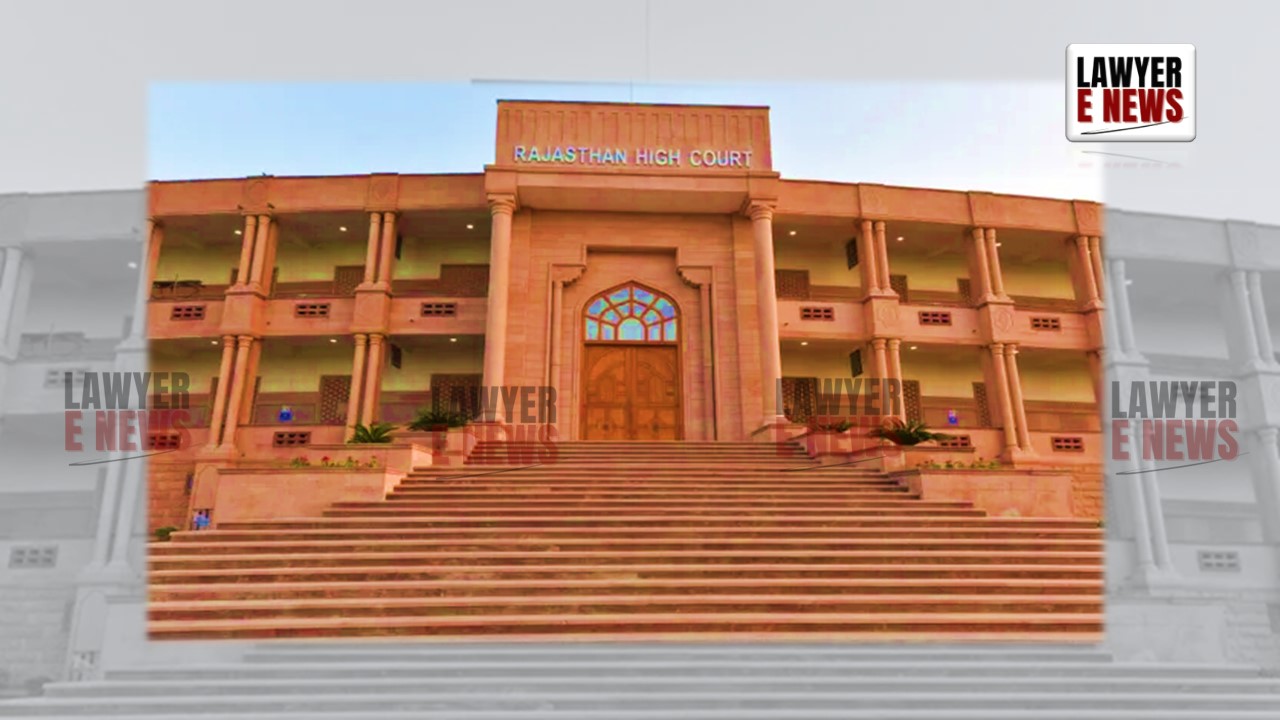-
by Admin
15 February 2026 5:35 AM



Rajasthan High Court, Jodhpur Bench, granted interim bail to Amar Singh Rathore, who sought temporary release to assist his wife through a critical spinal surgery. Justice Arun Monga held that Rathore’s temporary release was warranted on humanitarian grounds and noted that the right to dignity under Article 21 of the Constitution encompasses the petitioner’s marital responsibilities and duty to support his spouse during a medical emergency.
Amar Singh Rathore, who has been in judicial custody since November 2022 due to multiple criminal cases involving charges under Sections 406, 420, 409, 467, 468, 471, and 120-B of the Indian Penal Code (IPC), filed a petition for interim bail. His wife, Smt. Gor Kanwar, requires urgent spinal surgery involving pedicle screw fixation, and Rathore contended that he is the only family member available to provide her with pre- and post-surgical care. Given the urgency of her condition and the need for his presence, Rathore sought bail for 60 days to support her during this critical period.
Right to Dignity Includes Marital Responsibility
Justice Monga emphasized that the right to live with dignity, as enshrined under Article 21, includes the petitioner’s role as a husband. Citing the marital vows taken during the Hindu saptapadi ceremony, the court observed that fulfilling one’s marital duties is an integral aspect of human dignity. The judge remarked, “Article 21 of the Constitution of India extends to the right to live with dignity, which encompasses the marital duty to support one’s spouse, especially in times of medical need.”
Humanitarian Grounds and Risk Assessment: A Balanced Approach
The court considered the petitioner’s application on humanitarian grounds, given his wife’s critical condition and the lack of other family members to assist her. Justice Monga noted that Rathore’s presence was essential for his wife’s surgery and recovery, which justified a temporary release from custody.
In assessing the risk factors, the court found Rathore to be a low-flight risk due to his strong family ties. Additionally, the evidence against him in the ongoing cases is largely documentary and has already been secured, minimizing the likelihood of tampering. The court concluded, “Given that the petitioner is a non-flight risk and the evidence is mostly documentary, granting bail does not compromise the prosecution's case.”
Decision: Bail Granted with Conditions
The Rajasthan High Court granted Rathore interim bail for 60 days, starting from the date of his release, subject to the following conditions:
Period of Bail: The petitioner is to be released for a 60-day period. He is required to surrender back to judicial custody by 5:00 p.m. on the final day of this period.
Application to All FIRs: The bail order applies across all FIRs registered against him in connection with the Sanjivani Credit Cooperative Society cases.
Waiver of Insolvency Certificate: The Superintendent of Central Jail, Jodhpur, was instructed not to require an insolvency certificate as part of the bail conditions.
Justice Monga emphasized that the temporary release order should not hinder ongoing investigations and noted that Rathore must adhere strictly to the conditions laid out in the order.
Right to Dignity Under Article 21
In allowing interim bail, the High Court underscored that the fundamental right to life and dignity under Article 21 includes the petitioner’s right to act as a supportive spouse. The court noted that humanitarian considerations should guide judicial discretion in cases where family members face serious health crises, provided that the bail does not interfere with judicial processes.
The court observed, “Granting interim bail aligns with Article 21, which not only guarantees life and liberty but also upholds dignity, which encompasses the fulfillment of marital responsibilities, especially in times of crisis.”
This decision by the Rajasthan High Court highlights the judiciary’s sensitivity towards balancing legal custody with humanitarian concerns, particularly when fundamental rights are at stake. The court’s approach affirms that in extraordinary circumstances, temporary relief can be granted without compromising the legal process, thus enabling the petitioner to fulfill his family obligations.
Date of Decision: October 24, 2024
Amar Singh Rathore v. State of Rajasthan & Others, S.B.
